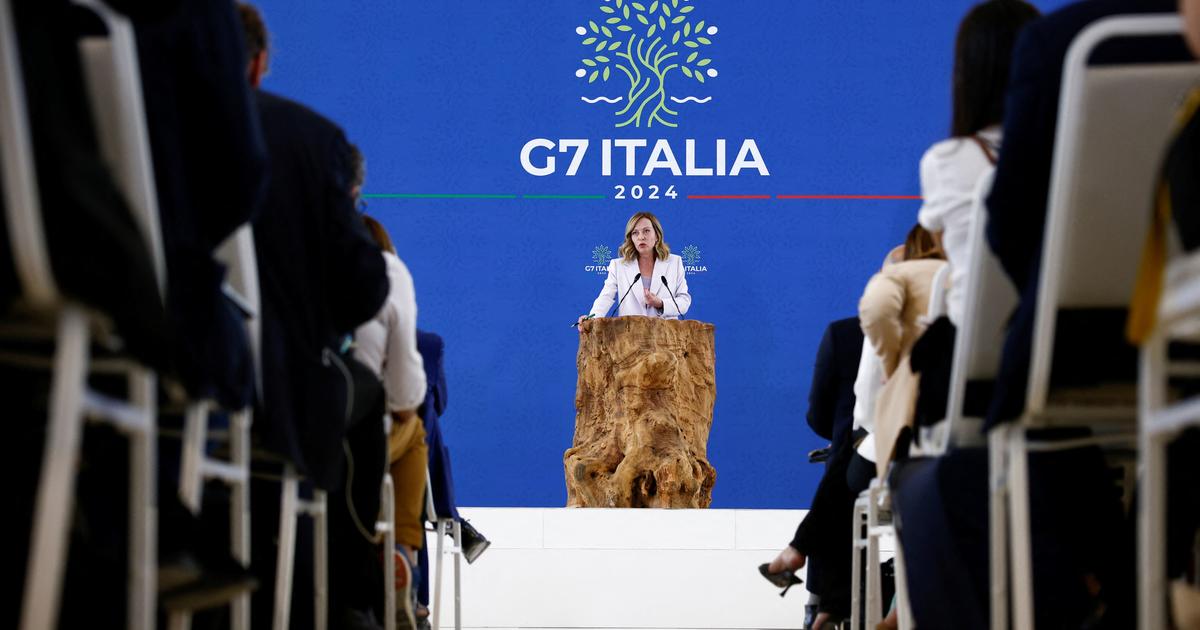Meloni Faces Criticism Over Abortion Rights at G7 Summit
Italian Prime Minister Giorgia Meloni faced significant backlash during the G7 summit, which she chaired, for omitting any reference to the right to abortion in the final declaration. In a 2023 summit in Hiroshima, leaders affirmed their commitment to “access to safe and legal abortion and post-abortion care services,” but this language was notably absent this year. According to Meloni, the controversy has been artificially constructed and was not debated during the summit.
The United States, France, and the European Union wanted to retain the previous year’s wording, leading to a behind-the-scenes standoff. Meloni, leading an ultraconservative party, asserted that merely reiterating commitments from the Hiroshima Leaders' Declaration sufficed. The issue became heated when French President Emmanuel Macron expressed his regret over the omission, inciting a sharp response from Meloni, who accused him of using the G7 as a political platform.
LGBTQIA+ Rights and Gender Identity
The 2023 declaration also emphasised the protection and support of “diversity, particularly with regard to sexual orientation and gender identity”. However, this year’s declaration lacked any mention of “gender identity”. Despite this, Meloni maintains that there has been no backsliding on LGBTQIA+ rights, although critics argue that the omission signals a troubling shift in focus.
Broader Summit Highlights and Pope Francis’ Historic Attendance
Besides these contentious issues, the summit covered a variety of global concerns such as the ongoing conflict in Ukraine and economic security with regard to China. Notably, US President Joe Biden pledged additional Patriot systems for Ukraine, enhancing their air defense. Discussions on using interest from frozen Russian assets to fund a $50 billion loan package for Ukraine were also pivotal.
Furthermore, in a historic first, Pope Francis attended the summit, partaking in sessions on artificial intelligence, energy cooperation, and relations with Africa and the Mediterranean. His presence marked an unprecedented intersection of religious and political leadership in such high-level discussions.
- The G7 summit in Italy also honored German Chancellor Olaf Scholz's 66th birthday, with heads of state including US President Joe Biden, Canadian Prime Minister Justin Trudeau, and French President Emmanuel Macron participating in celebrations. Moreover, Russia's President Vladimir Putin proposed a ceasefire in Ukraine, contingent on Kiev renouncing NATO and withdrawing troops from annexed regions, a proposal that shook the summit discussions.
- The tone towards China became notably sharper as the G7 expressed concern over China's support for Russia, leading to significant security policy implications. US sanctions aimed at over 300 individuals and institutions facilitating Russia’s war efforts were also a point of discussion, further straining relations with China.
- Pope Francis’ attendance was part of broader discussions aimed at addressing issues of migration, climate change, and Africa's economic potential, emphasizing the global character of the summit's agenda. Despite the controversies, the summit concluded on a high note with commitments and loans directed towards aiding Ukraine.






